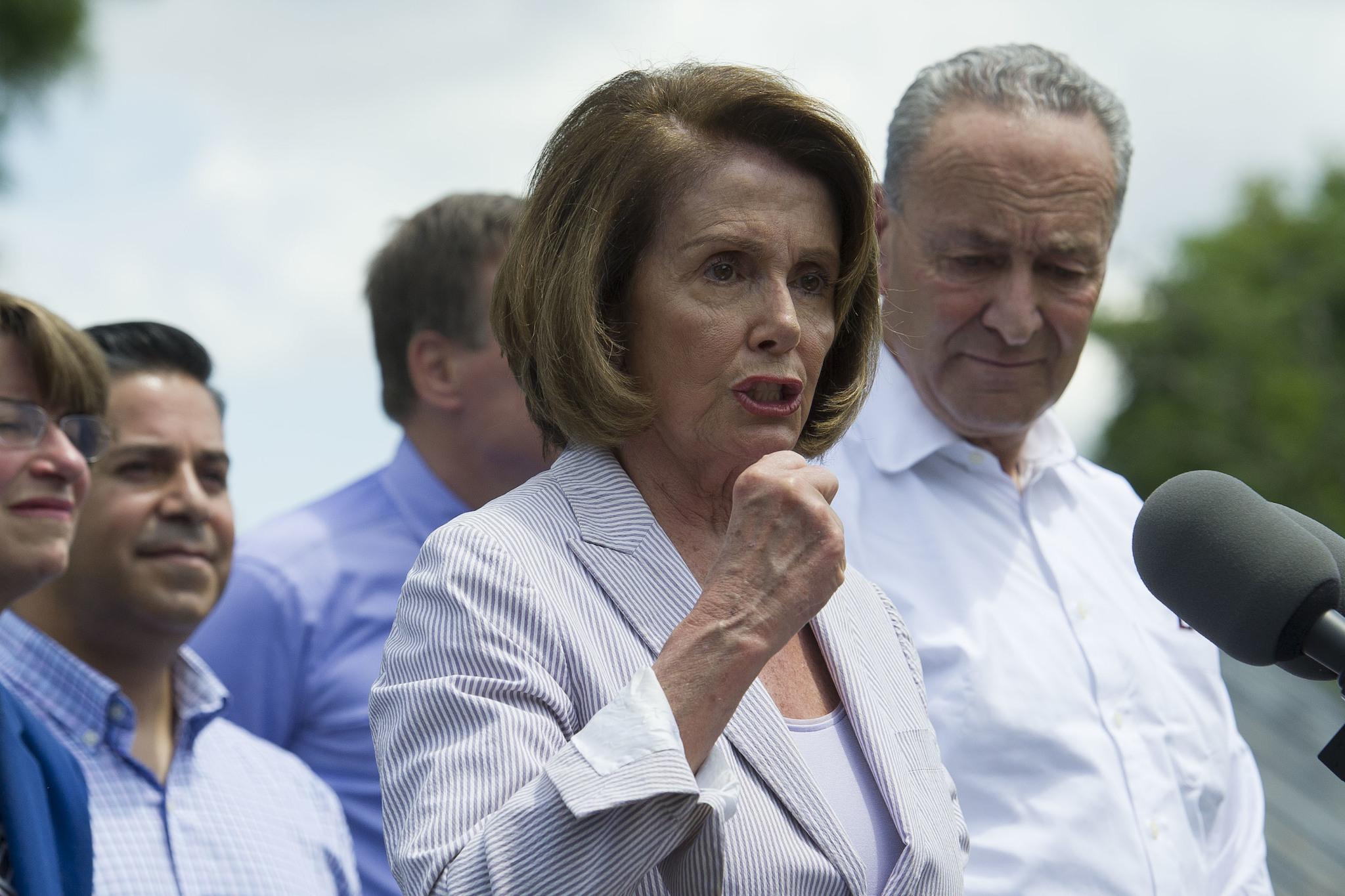Democrats unveil new strategy to win back voters who think 'the system is rigged against them'
The party has been desperate to regain its mojo following a colossal defeat last year when Donald Trump triumphed over Hillary Clinton

Democrats have unveiled a new new economic agenda meant to appeal both to the party’s progressive wing and those who voted for Donald Trump, aspiring to win back voters who believe “the system is rigged against them”.
The party has been desperate to regain its mojo following its great defeat last November, when Mr Trump triumphed over Democratic nominee Hillary Clinton, and several losses during special elections earlier this year – when it had hoped to capitalise on anti-Trump sentiment. By vilifying multinational corporations as well as focusing on wage growth and lowering costs of everyday expenses, Democratic leaders are hoping to reclaim the economic populism mantle from Mr Trump.
“In the last two elections, Democrats, including in the Senate, failed to articulate a strong, bold economic program for the middle class and those working hard to get there,” Senate Democratic Leader Charles Schumer wrote in an op-ed in The New York Times. “We also failed to communicate our values to show that we were on the side of working people, not the special interests.”
It will be a challenge for the Democrats to retake a majority in both the House of Representatives and the Senate during the 2018 midterm elections. The party needs a net gain of 24 to have a majority in the 435-member House. Meanwhile, while Democrats only need a net gain of three seats in the 100-member Senate, they are also defending 25 seats – 10 of which are in states that Mr Trump won.
During the presidential campaign, Democratic candidate Bernie Sanders continuously railed against the growth of corporate power in America, asserting that multinational corporations and special interests have profited at the expense of American workers.
Along with Mr Sanders, several other members of Congress have expressed concern about how the increased consolidation of companies enhances corporate lobbying power, thereby increasing the ability of special interests to influence politics in their favour.
Mr Trump as a presidential candidate also voiced some opposition to the expansion of conglomerates when he opposed the $85bn merger between telecommunications giant AT&T and Time Warner, which owns CNN and HBO, saying the deal would result in “too much concentration of power”.
In its new economic agenda – under the slogan “A Better Deal: Better Jobs, Better Wages, Better Future” – the Democratic Party appears to be trying to build off of these populist ideas that were a driving force behind the Sanders and Trump campaigns.
In an op-ed published in The Washington Post, House Minority Leader Nancy Pelosi said Democrats will demand that proposed mergers meet tough new standards to protect competition before approval, and will institute post-merger reviews to ensure that consolidated companies keep their promises to American consumers.
“Large communications companies merge, and families see fewer options and higher bills,” House Minority Leader Nancy Pelosi wrote. “Agriculture giants consolidate, while farmers struggle and prices in Americans’ shopping carts rise. The price of gas goes down, but plane tickets become more expensive and airlines keep adding fees.”
“With this agenda, Democrats pledge ourselves to breaking the grip of the special interests and confronting the rising everyday costs that families have endured for too long,” she added.
Democrats also hope to take aggressive action to lower the cost of prescription drugs — the single largest factor driving increasing health costs in the US today, Ms Pelosi said.
Generic pharmaceutical companies are currently under fire from consumers, legislators, antitrust enforcers and state attorneys general for what many claim are exorbitant price hikes in recent years.
Last year, multiple senators called for the Federal Trade Commission and the Senate Judiciary Committee to investigate potential antitrust violations by Mylan, which dramatically increased the price of EpiPens – used to treat severe allergic reactions – from $100 for a pack of two in 2009, to about $500 or $600 in 2016.
Join our commenting forum
Join thought-provoking conversations, follow other Independent readers and see their replies
Comments
Bookmark popover
Removed from bookmarks